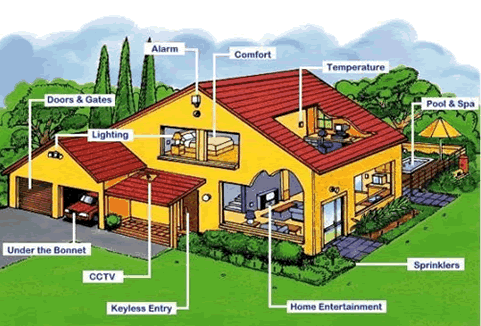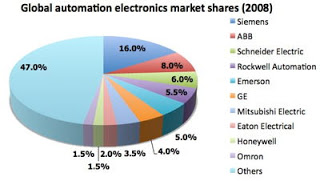Being an Architect
Reflections on the profession, design, art, books and life in general07
2012Automation: Designing for a smarter world?
Are we getting more and more addicted towards technology? Are our daily chores getting more and more automated?
"Three scenarios likely to be possible in the future:
- "No," says the refrigerator. "Not eggs again. Not until your weight comes down, and your cholesterol levels are lower. Scale tells me you still have to lose about five pounds, and the clinic keeps pinging me about your cholesterol. This is for your own good, you know."
- "I just checked your appointments diary in your smart phone," says the automobile as you get into the car after a day's work. "You have free time, so I've programmed that scenic route with those curves you like so much instead of the highway - I know you'll enjoy driving it. Oh, and I've picked your favorite music to go with it."
- "Hey," says your house one morning as you prepare to leave. "What's the rush? I took out the garbage. Won't you even say thank you? And can we talk about that nice new controller I've been showing you picture of? It would make me much more efficient, and you know, the Jones's house already has one."
.jpg)
[source: NTU Intelligent Robot & Automation Lab (EN/TW)]
Do you trust your house to know what is best for you? Do you want the kitchen to talk to your bathroom scale, or perhaps to have your toilet to run an automatic urinalysis, sharing the results with your medical clinic? And how, anyway, would the kitchen really know what you are eating/ How would the kitchen know that the butter, eggs, and cream taken out of the refrigerator were for you, rather than for some other member of the household, or for a visitor, or maybe even for a school project?"
"BUT LO! MEN HAVE BECOME THE TOOLS OF THEIR TOOLS." - HENRY THOREAU
In The design of future things, Donald. A. Norman explores the links between design and psychology and he offers a consumer-oriented theory of natural human-machine interaction that can be put into practice by the designers of tomorrow's blinking machines.

Like it or not, we are entering an era of intelligent machines which are designed to make our life more and more 'easy'. If you are late to the scenario, automation has already taken its deep impact in the way we design buildings. The market is already flooded with competing brands of automation and security systems.

The probing questions are:
Are these systems really intelligent? Can it take count for exceptional situations? Does anybody use the collected information for their benefit? Are we getting manipulated? Is it getting all the more complicated? How much is enough?
Hope the future has smarter answers!
Search this blog
subscribe
Followers
BINU BALAKRISHNAN

Principal architect at Leading Design Architecture Studio, Cochin (http://www.leadingdesign.in/). Holds a Masters in Architecture from IIT Roorkee. Passionately involved in architecture, art, photography, books and technology that touches life. . . . . . .

